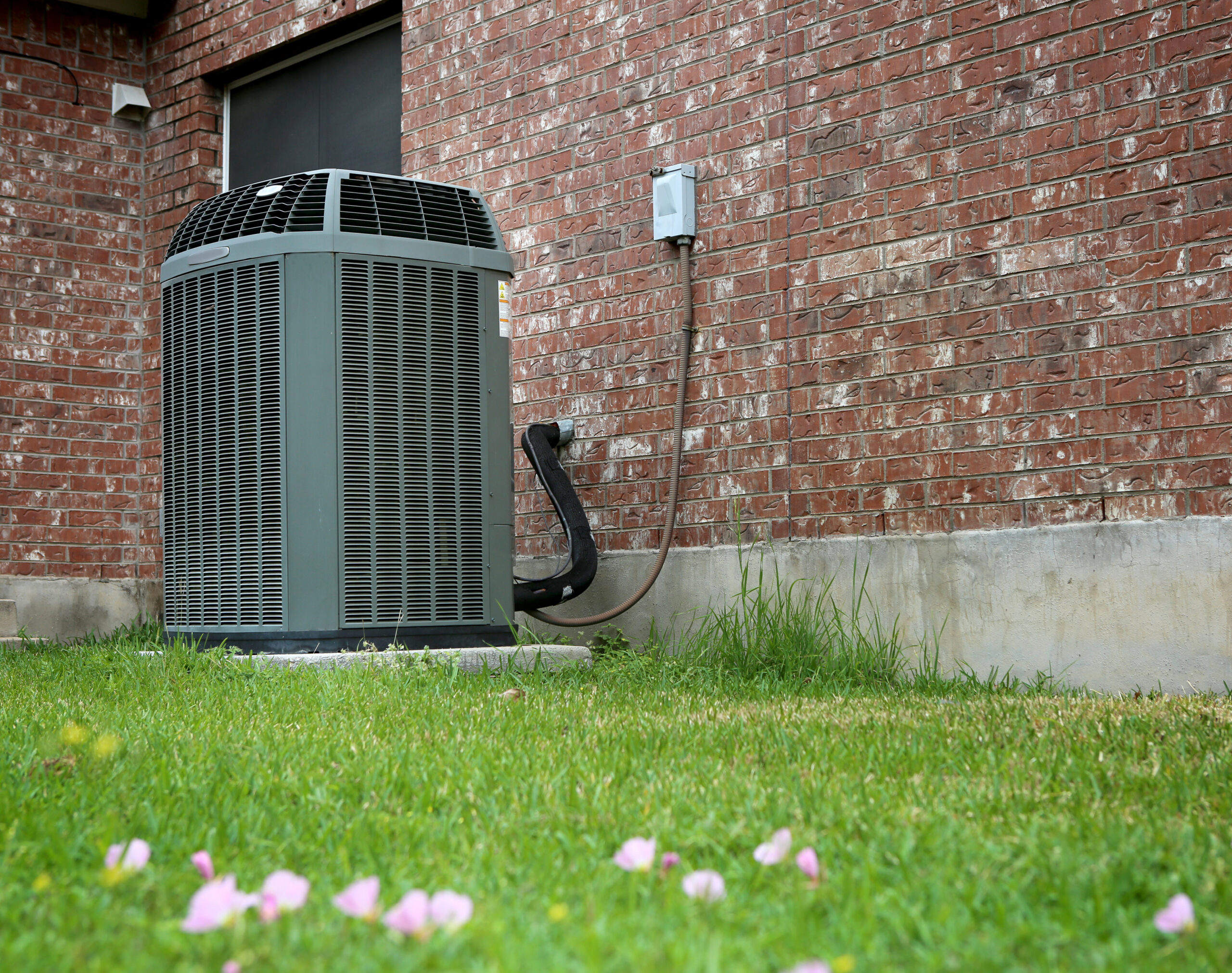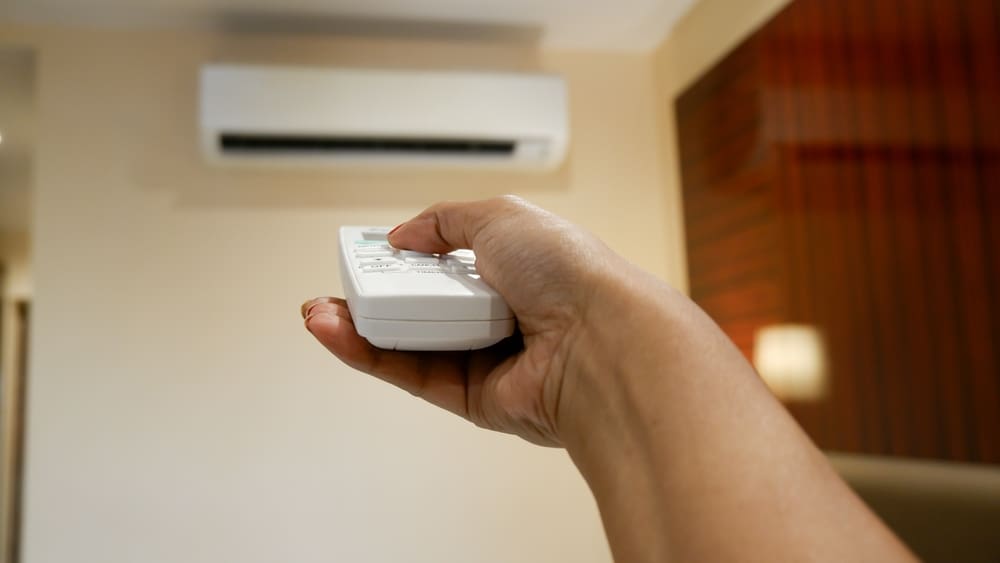
If you are on the market to replace your HVAC system, you may have seen offers for secondhand air conditioners. Perhaps you have noticed a used air conditioner on an online marketplace, like Craigslist, or maybe you know someone who is selling an old unit.
While you may be able to cut corners by getting a used air conditioner at a slightly cheaper price, the negative outcomes far outweigh any initial benefits. In fact, the accumulation of maintenance costs, low energy efficiency and higher likelihood of emergency repairs can cancel out any expected savings. These top reasons to avoid buying a used AC units can help you make an informed decision for your household.
1. Unseen Mechanical Issues
Used air conditioners often come with a host of mechanical issues and internal problems. While you may be able to see external issues, like scratches or debris, you will not be able to see problems or defects deep within the machine prior to purchasing. These defects can include loose mechanical parts, like fans or blower motors, frayed wiring or damaged compressors. Other problems may involve a failing capacitor or blown motor on the brink of complete shutdown. Although the original owner may sell the unit in good faith, it is quite a hassle to deal with unseen mechanical defects after all the trouble of dismantling, transporting and reinstalling the machine. For most homeowners, it makes more sense to get a new unit.
Another unforeseen problem with damaged mechanical parts is that if the air conditioner is an older unit, the manufacturer might not be making it anymore. This means that you will not be able to find replacement parts if anything goes wrong. Imagine the headache of internet searches and phone calls to find compatible parts for an outdated machine. And, in some cases, these components can feel almost impossible to replace.
For example, air conditioner manufacturers officially phased out the production of the R-22 refrigerant blend in 2020. According to the U.S. Department of Energy, only recovered, recycled or reclaimed supplies of R-22 will be available in the future. Buying a used AC might mean you are stuck with the R-22 refrigerant when you may need a unit that uses R-410A or A2L-class refrigerants, like R-32 and R-454B. These refrigerants have higher efficiency and lower global warming potential (GWP). It is far better to work with an HVAC professional to choose the most up-to-date AC for your household.
2. Unexpected Miscellaneous Costs
While a used air conditioner might seem cheaper at first, this price does not include installation or other miscellaneous components that start to add up. For example, buying a used central air conditioning system means that you may also need to install ductwork throughout the house. A technician would need to determine the best location for the ducts, cut holes in the floor, and acquire all installation materials.
You will also need to schedule duct-cleaning sessions throughout the life of your secondhand unit. Even if you purchase a used window air conditioner, you could potentially save more money by getting central air conditioning with a new ductless mini-split system instead. Rather than assuming that a used unit will automatically save money, you should consult with an HVAC company first to explore all your options.
When it comes to a used cooling system, there is almost always more involved than just the sale price. For instance, a contractor may charge for labor and home square footage to complete the installation of the cooling system. If the air conditioning system is very old, you may also need to improve its efficiency by installing insulation. Some old units require rewiring, so you would need to hire an electrician or a technician qualified to work with high-voltage connections. If the seller of your air conditioner is located outside your local area, you will also need to calculate shipping and transport fees.
Finally, there are almost always miscellaneous expenses that arise during the installation itself. These can include replacement hoses, connectors or adapters. Getting a new unit ensures that all parts fit and spares you the trouble of unforeseen expenses.

3. Lack of Warranty
New air conditioners typically come with comprehensive warranties. These warranties can include the unit itself as well as parts, like the coils or compressor. If you purchase a used AC, however, the warranty coverage may have already expired. You would then need to handle any sudden breakdowns yourself. Even if you purchase a unit within its warranty period, the terms of the warranty may apply only to the original installer or original installation site. Manufacturers often include fine print that states that the warranty is limited and non-transferable. The warranty becomes null and void if you move it to another installation site. To prevent such a hassle, it is better to get the latest model under full warranty. Depending on your area, you may also be eligible for tax incentives and rebates if your new unit is energy efficient as well.
4. Likelihood of Necessary Repairs
After purchasing a new conditioner, you often never know whether it is reliable until you power it on during the hottest days of the year. You may find that the secondhand, or third-party, air conditioner comes with some unpleasant surprises. For example, an older AC unit is typically louder than a new one. Loud noises, like rattling or grinding, can indicate broken or missing parts. You would need to schedule a repair before any issue escalates into a safety hazard. For instance, a buzzing sound could indicate problems with the condenser fan motor, contactor relay switch or circuit breakers. These are all electrical issues that require immediate attention from a qualified technician.
Similarly, old AC units can come with low refrigerant levels. Lack of refrigerant can compromise the performance of the unit and will cause your system to use more energy to cool the air. Moreover, only trained technicians can change or refill refrigerant lines due to the chemicals involved. And any refrigerant leaks from an old unit can expose your household to harmful chemicals. In contrast, new air conditioners come with the recommended amount of refrigerant. You can then schedule your standard maintenance appointments to ensure that your AC then maintains the appropriate refrigerant levels.
In addition to mechanical or electrical issues, an old AC unit may also need repairs due to the conditions of its previous location. Older air conditioners have often had years to collect dust, debris, pathogens, bacteria or mold. This contaminant buildup can then blow out into the air of your home, resulting in allergens that compromise the health of your family. Instead of settling for poor air quality, it is often best to give yourself peace of mind by getting a fresh start with a new AC unit.
5. Limited Shelf Life
Getting an old air conditioning unit can also result in a limited shelf life. According to the U.S. Department of Energy, the lifespan of an air conditioner is roughly 15-20 years. If you purchase an older unit, the equipment may not have many more years left before you will have to replace it.
In addition, you may have limited information on whether the previous owner maintained the system with annual checkups or tune-ups. This means that an air conditioner that is only eight years old could already be decrepit and close to its breaking point. Plus, the essential components of the air conditioner could lose their efficiency long before the unit itself shuts down. Any money saved from buying an old unit will not justify the cost of needing to replace it again after a short amount of time.
Contact BEST Air Conditioning Today
While buying an old air conditioner might seem like a good quick fix at first, this option is not worth it in the long run. Save yourself the hassle and install a high-quality air conditioner instead. BEST Air Conditioning Plumbing Repair provides efficient AC installations for Las Vegas and surrounding areas in Nevada. As a fully licensed company, we offer professional HVAC installation of central cooling systems, energy-efficient AC units and mini-split products. We also provide AC maintenance, tune-ups and repair if you have questions about any of your existing units. Contact BEST Air Conditioning Plumbing Repair today for all your air conditioning needs.

